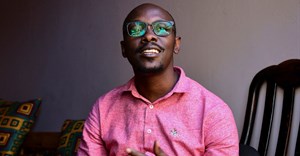Running a successful HIV treatment programme in a war zone is difficult but nevertheless possible, according to the international medical charity, Medecins Sans Frontieres (MSF).
In a paper, HIV Treatment in a Conflict Setting: Outcomes and Experiences from Bukavu, Democratic Republic of Congo [DRC], published recently in the Public Library of Science medical journal (http://medicine.plosjournals.org/perlserv/?request=get-document&doi=10.1371/journal.pmed.0040129), MSF seeks to debunk the myth that providing comprehensive healthcare, particularly life-prolonging antiretroviral (ARV) medication, is impossible in conflict situations.
"While recent research shows that conflict can protect populations from HIV, we also know that it can put populations at risk through sexual violence, displacement and so on, and we also know that many conflict areas, such as Bukavu, already have a high HIV burden," Dr Daniel O'Brien, MSF's HIV/AIDS advisor and one of the paper's authors, told IRIN/PlusNews. "We feel that these populations need HIV treatment just as much as people living in non-conflict environments."
Bukavu, the provincial capital of South Kivu in the eastern DRC, has experienced conflict on and off since 1996. The war deprived much of its 600,000-plus inhabitants of basic services such as healthcare.
MSF began its HIV treatment programme in Bukavu in 2000, and had 494 patients enrolled on ARV regimens by January 2006. Despite a serious outbreak of violence in 2004, during which many MSF staff had to be evacuated, only 5 out of 66 patients on ARVs suffered a significant interruption of treatment.
"In a conflict situation, there is always the risk that treatment will be interrupted, which is particularly dangerous for ARVs, which you take for life and which must be adhered to carefully if you want to avoid resistance," O'Brien said.
"There are things you can do to make a treatment programme robust and sustainable, even during acute conflict," he added. "You can minimise the risk of running out of medication and, in case the clinics do run out, you can stop treatment safely to minimise the risk of developing resistance."
He noted that in most long-running conflicts, as in Bukavu, it was rare for full-on violence to be the norm; rather, the wars were marked by long periods of stability and short bursts of serious violence.
MSF said the keys to running a successful programme included patient education to create good adherence, good communication networks, having a cache of emergency drug stocks, ensuring secure drug storage, and cooperation with other treatment facilities in the area.
"Certainly, even with all these mechanisms in place there is the possibility of treatment interruption, but if you had to guarantee that treatment would not ever be interrupted in many developing countries, you would never start an ARV programme," O'Brien commented.
He said staff security during violent episodes was also always an issue, but while MSF did everything in its power to protect its staff, the choice to stay on in a situation of acute conflict was always an individual one.
MSF has run treatment programmes in other African countries that have experienced conflict, including Angola, Burundi, Cote d'Ivoire and Liberia, with similar results to their Bukavu programme. In Angola and Burundi, now both post-conflict countries, it is in the process of handing over the programmes to the government.
The organisation is setting up treatment projects in the volatile Central African Republic and Sri Lanka.
Published courtesy of: IRIN/PlusNews
























